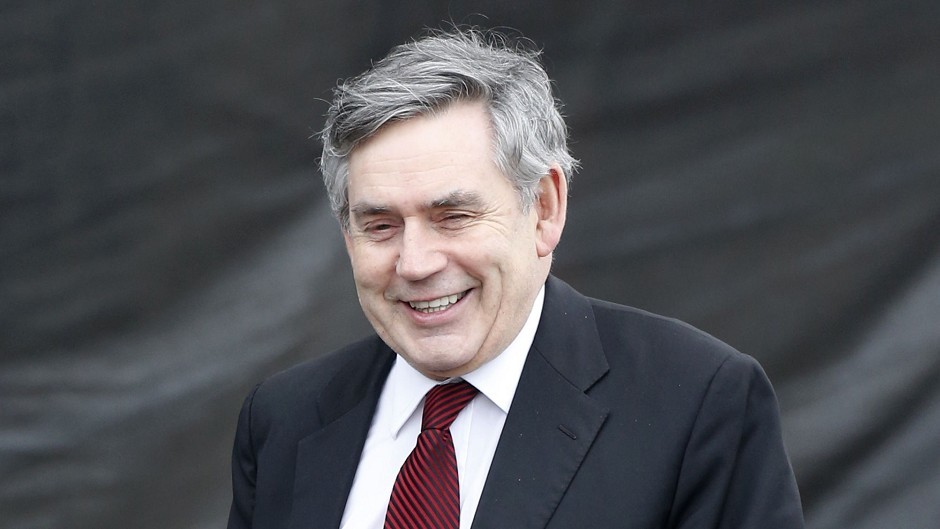Former Prime Minister Gordon Brown claimed yesterday that Scots should view “interdependence, not independence” as the key to the nation’s future.
The Labour MP called on referendum voters to follow the traditions of the Scottish Enlightenment and consider the “big picture” when they go to the polls.
In his latest intervention in the independence debate, Mr Brown reiterated his belief that British politics are changing forever and for the better.
Speaking in front of an audience of 570 at the Edinburgh Book Festival, he said: “We should follow the traditions of the Scottish Enlightenment and think of the big picture and the long term when we make our referendum decision – and consider how future generations of Scots can get the most out of an interdependent world.
“As companies, industries and economies become ever more closely and irreversibly intertwined at a global level, people know that there is no alternative to cooperation between countries.
“Independence, going off on your own – and in this case breaking up the UK – will soon be seen as an idea of the past, a 19th century solution to a 21st century problem.
“It is interdependence – not independence – that is the idea of the future.”
On the changing nature of sovereignty in Britain, Mr Brown said: “A No vote does not mean no change. From 2014 onwards, thanks to our proposals, the old ideas of a unitary British state, Westminster sovereignty and even parliamentary rather than popular sovereignty are already dead and buried.
“The United Kingdom will move as close to federalism as we can go in a country where one nation accounts for 80% of the population – and Scots can take credit for much of the change.”
He also used the argument to raise fresh questions about SNP plans for a currency union.
“Even Mr Salmond has had to accept there is a case for sharing sovereignty,” Mr Brown said.
“He has accepted the benefits for Scotland of being part of the UK currency but he will not follow through the logic of his position, that Scotland should be represented in the UK decision-making process for the currency and thus in the UK Parliament.”
